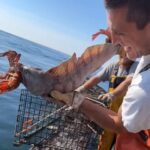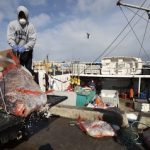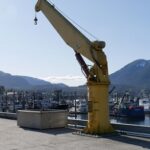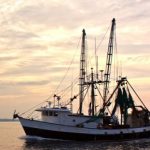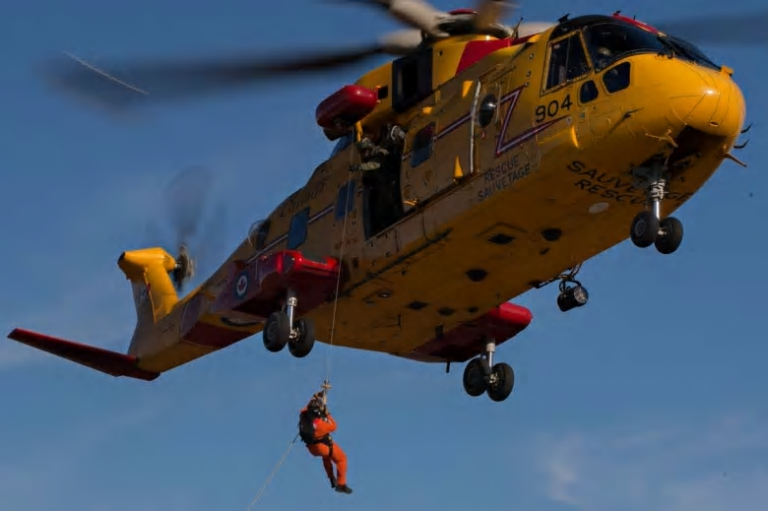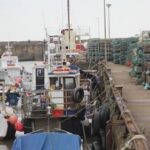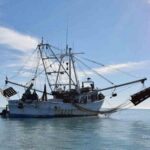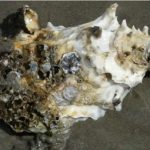Tag Archives: culture
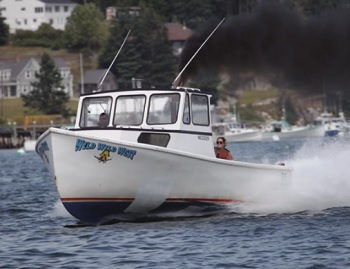
Wild Wild West sets new record at Stonington lobster boat races
Lobstermen put away the traps and opened the throttles this weekend at the Stonington lobster boat races. About 75 boats participated in the races this year, with a strong local presence and a contingent for Vinalhaven and North Haven, said Jon Johansen, the president of the Maine Lobster Boat Racing Association. Cameron Crawford’s Wild Wild West, always a top contender at the races, clocked 61.6 mph, setting a new diesel record by about 1 mph, en route to first place in the diesel free for all, Johansen said. >click to read< 08:59
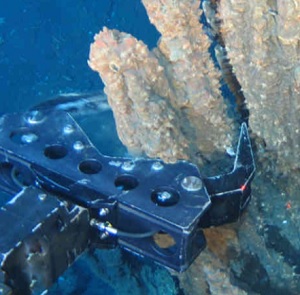
Seabed mining ban – a win for marine life, fishing and culture
The Northern Territory Government first declared a three-year temporary ban on seabed mining in March 2012 and has since extended it twice under both the Country Liberal Party (CLP) and Labor Governments. With the temporary ban due to expire in March, Territorians have made it clear that they want a permanent ban. It’s great to see today the Government listen and act on this important issue. “The Top End has some of the last healthy tropical coasts in the world. Seabed mining is like bulldozing the seafloor. It would decimate our marine life, pollute our waters, threaten our fishing and destroy places of cultural significance.” >click to read< 12:37
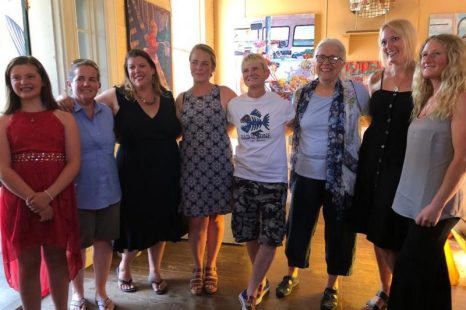
Painter Susan Tobey White captures a ‘day in the life’ of female lobstermen
First, it’s important to get it straight. She’s not called a ‘lobsterwoman’ if the person lobster fishing is female; the correct term, no matter what the gender is lobsterman. Susan Tobey White’s latest series, “Lobstering Women of Maine” is all about the women who haul traps, bait bags, stern and lobster fish off their own boats. The exhibit is currently hanging at Penobscot Marine Museum until October 2019. At least 300 people showed for her artist’s reception on July 14 and among those in the crowd were several of the women she did the portraits of. “I think most of the people who showed up at the reception were in awe. They had no idea that women even did this line of work,” said White. >click to read< 10:32
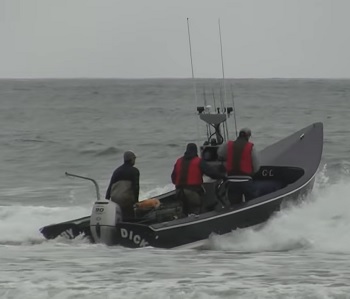
Pacific City and Astoria honor their maritime heritage and culture with decades-old celebrations
In many towns along the Oregon Coast, boating isn’t just a livelihood or a means of recreation, but a way of life, the foundation that defines a community. In coming weeks, two towns will celebrate their maritime history with festivals that have been going strong, in one community, for decades; in the other, more than a century. In Pacific City, 2019 marks the 60th anniversary of Dory Days, which runs July 19-21. The festival opens Friday,,, Astoria is preparing for its 125th celebration of the Astoria Regatta, Aug. 7-10. >click to read< 08:43
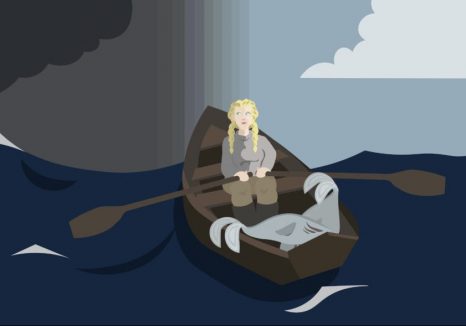
Iceland’s Forgotten Fisherwomen
In the mid-1700s, a seawoman in Iceland named Björg Einarsdóttir composed a poem teasing men on her boat for their weak rowing: Do row better my dear man, Fear not to hurt the ocean. Set your shoulders if you can Into harder motion. Her work at sea may seem unusual. After all, fishing is generally considered a man’s job. But recent work by an American researcher, Margaret Willson, suggests that Einarsdóttir was one of hundreds of Icelandic women in the 18th and 19th centuries who braved towering waves and icy waters to catch fish. click here to read the story 11:20
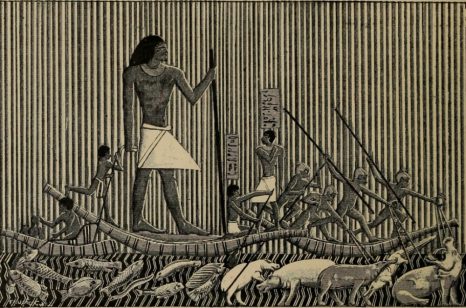
How Fishing Created Civilization
Of the three ancient ways of obtaining food—hunting, plant foraging, and fishing—only the last remained important after the development of agriculture and livestock raising in Southwest Asia some 12,000 years ago. Yet ancient fisher folk and their communities have almost entirely escaped scholarly study. Why? Such communities held their knowledge close to their chests and seldom gave birth to powerful monarchs or divine rulers. And they conveyed knowledge from one generation to the next by word of mouth, not writing. click here to read the story 10:02
Yes, I butcher whales. It’s certainly no worse than what happens in slaughterhouses
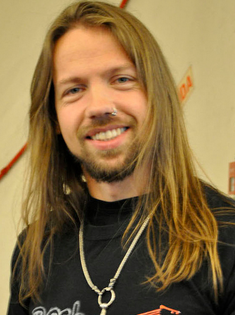 I ( Heri Joensen ) live in the Faroe Islands, where whaling has been part of our way of life for centuries. Last month, I was working on a long-finned pilot whale the day after it had been killed. Since more than four-fifths of the world’s population eats meat, I thought it would be fine to share such a picture — it’s no secret, surely, how meat is produced? But uproar followed. A campaign was launched to cancel my band’s (Týr) gigs and stop venues booking us. We seldom see pictures from inside slaughterhouses. As a result, people have strange ideas about meat — they seem to believe that animals are willingly and painlessly slaughtered behind closed doors. Ethically, I don’t see the difference between slaughtering wild whales and farmed cows. All animals suffer: if you can slaughter cows for meat, why not slaughter wildlife? Video, Read the story here 12:37
I ( Heri Joensen ) live in the Faroe Islands, where whaling has been part of our way of life for centuries. Last month, I was working on a long-finned pilot whale the day after it had been killed. Since more than four-fifths of the world’s population eats meat, I thought it would be fine to share such a picture — it’s no secret, surely, how meat is produced? But uproar followed. A campaign was launched to cancel my band’s (Týr) gigs and stop venues booking us. We seldom see pictures from inside slaughterhouses. As a result, people have strange ideas about meat — they seem to believe that animals are willingly and painlessly slaughtered behind closed doors. Ethically, I don’t see the difference between slaughtering wild whales and farmed cows. All animals suffer: if you can slaughter cows for meat, why not slaughter wildlife? Video, Read the story here 12:37
Culture: How fishermen use charms, juju and suicide ropes to catch fish for Nairobians
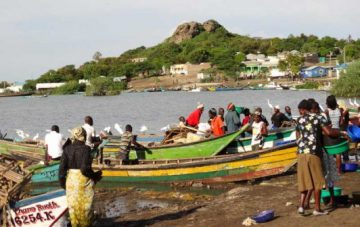 At 8pm, a ghostly stillness settles over the waters of Lake Victoria. A gentle breeze wafts along the beaches, the air fragrant with pine, grass and the sharp, pungent smell of fish as crickets and croaking frogs lull residents to sleep. But for fishermen, bells toll, signaling a new ‘day’ in office. Far away in Nairobi, mama samaki is keeping vigil at Gikomba, Marikiti and City Market, awaiting trucks piled with tilapia to arrive at dawn from the lake’s landing beaches for Nairobi’s urban population. But unknown to urbanites who devour the ngege with relish, fish does not stagger into the net like drunken louts. Most fishermen (and women) use witchcraft to ensure a bountiful catch! From naming boats after dead relatives, scrambling for ‘suicide ropes’ and seeking the services of witchdoctors for protection and good tidings, fishing in the lake region is not for the fainthearted or the ‘Amen!’ brigade. Read the rest here 11:11
At 8pm, a ghostly stillness settles over the waters of Lake Victoria. A gentle breeze wafts along the beaches, the air fragrant with pine, grass and the sharp, pungent smell of fish as crickets and croaking frogs lull residents to sleep. But for fishermen, bells toll, signaling a new ‘day’ in office. Far away in Nairobi, mama samaki is keeping vigil at Gikomba, Marikiti and City Market, awaiting trucks piled with tilapia to arrive at dawn from the lake’s landing beaches for Nairobi’s urban population. But unknown to urbanites who devour the ngege with relish, fish does not stagger into the net like drunken louts. Most fishermen (and women) use witchcraft to ensure a bountiful catch! From naming boats after dead relatives, scrambling for ‘suicide ropes’ and seeking the services of witchdoctors for protection and good tidings, fishing in the lake region is not for the fainthearted or the ‘Amen!’ brigade. Read the rest here 11:11






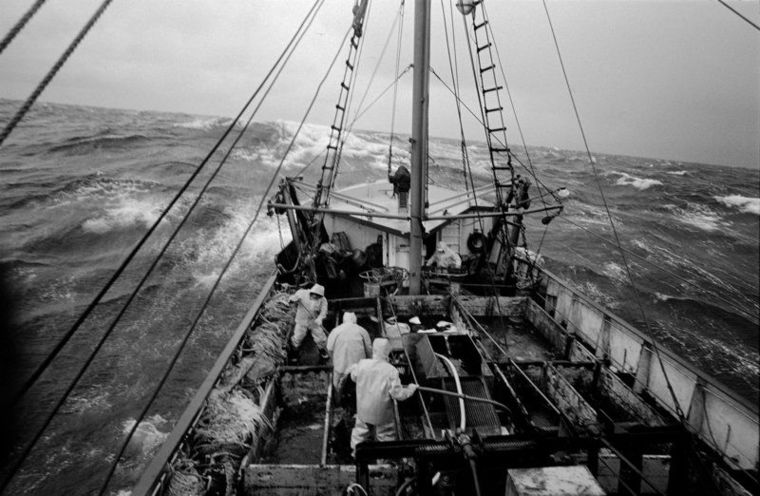 When Nubar Alexanian started visiting Gloucester in 1971 as a young man of 21, the harbor bustled with fishing vessels that hauled in millions of pounds a fish a day. He captured the hive of activity among the Gloucester-based fleet from onshore and on extended trips offshore. The Worcester-born photographer soon made the nation’s oldest seaport his home, immersing himself into the cornucopia of Gloucester life and landscape.
When Nubar Alexanian started visiting Gloucester in 1971 as a young man of 21, the harbor bustled with fishing vessels that hauled in millions of pounds a fish a day. He captured the hive of activity among the Gloucester-based fleet from onshore and on extended trips offshore. The Worcester-born photographer soon made the nation’s oldest seaport his home, immersing himself into the cornucopia of Gloucester life and landscape. 


























